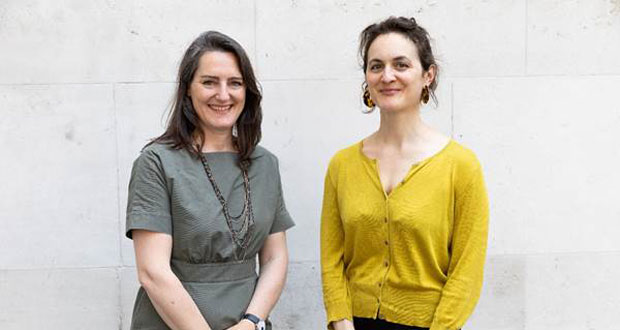Co-authors Marion Baeli, Principal – Sustainability Transformation at 10 Design (part of Egis’ Architecture Line) and Julie Godefroy, Head of Net Zero Policy at CIBSE, have today, announced the launch of Retrofit Revisit published via CIBSE.
Supported by Innovate UK, part of UK Research and Innovation and Historic England as well as in-kind contributions from project partners including Studio PDP, Retrofit Revisit investigates how 10 housing projects of varying archetypes and locations are performing 10 years after their original retrofit. The findings reveal that despite small fluctuations in performance over a decade, the retrofitted residences outperform the non-retrofitted housing stock overall. Residents’ feedback on their 10 years of occupancy in these retrofits has been positive, with increased comfort, especially during the colder months and with reduced energy bills.
Baeli said:“In publishing ‘Retrofit Revisit’ our goal is to boost confidence in the lasting benefits of retrofitting while also emphasising the insights gained from building performance evaluations and identifying areas needing further research to ensure the reliability and longevity of building fabric and operations. Through this collaborative research effort, we aim to support the nationwide retrofitting of existing homes across the UK.”
The projects build on pioneering case studies from 10 years ago, which were considered ‘deep retrofit’ (aiming towards 80 per cent CO2 emission reduction) and exemplar at the time, including some from the Retrofit for the Future programme. Six of the Retrofit Revisit case studies were covered in Residential Retrofit: Twenty Case Studies, published by RIBA in 2013 and completed while Baeli was at Studio PDP.
All 10 projects underwent a rigorous Building Performance Evaluation (BPE) to assess various aspects such as fabric, energy efficiency, indoor environment, airtightness, and user feedback. These evaluations employed a blend of standard and non-intrusive techniques to ensure a thorough analysis, learn about the value of innovative evaluation techniques, as well as the performance of the buildings over time.
Godefroy, said: “Retrofit Revisit shows that, when done well, retrofit provides huge energy savings as well as comfortable homes. I hope this will encourage more studies to gather lessons on more retrofit typologies and larger samples, but that it will also give confidence to industry and policy makers to implement retrofit at scale.”
The evaluations, completed by a team comprised of well-known experts in the retrofit sphere, emphasise the crucial role of good design and detailing, and regular maintenance in optimising the performance of buildings, regardless of their retrofit status. Neglected components such as gutters and ventilation filters can lead to problems like water ingress and inadequate air quality. Easy-to-maintain retrofitted homes are more likely to stand the test of time, whereas those with complex maintenance requirements will not.
The research demonstrates the reliability of deep retrofit measures, when implemented with attention to detail at the design stage and on-site. The homes provide high levels of comfort while maintaining low energy demands over a long period of time, instilling confidence in the industry that retrofitting initiatives are a worthwhile investment.
Additionally, the research sought to evaluate the practicality and resilience of various testing methodologies and techniques, with the goal of making BPE more routine and widespread. The projects show the high potential for more routine BPE, combining well-established tests such as airtightness testing wth more innovative testing for fabric thermal performance, fabric degradation and ambient mould.
The UK Climate Change Committee (CCC) recognises that retrofits are a large part of the net-zero trajectory of the UK. Achieving the nation’s carbon reduction targets necessitates a significant increase in the efficiency of existing housing stock. Retrofit Revisit’s aim, therefore, is to inspire confidence and encourage the rollout of retrofit measures on a national scale.
Mat Colmer, Senior Innovation Lead – Construction & Net Zero Heat at Innovate UK, part of UK Research and Innovation, said: “It’s been over 10 years since Innovate UK invested £25 million in the Retrofit for the Future programme. It is important that we learn from such programmes and how they fair over time. Retrofit Revisit does exactly this, providing designers and decision-makers, as well as home occupants, the confidence that when a job is done well it delivers on performance and market certainty for the retrofit industry.”
The FM industry is evolving quicker than ever before, and so are the demands of the customers it serves.
To help shed light on some of the trends that are shaping the sector, Biological Preparations, a leading UK biotech company, is conducting a survey in collaboration with FMJ to identify the sustainability priorities and challenges amongst FM leaders.
This five-minute, anonymous FM-focused survey, offers FM professionals of all hierarchies with a platform to voice their perspectives and share their experiences.
As a thank you for taking part in the survey you will be entered into a prize draw to win £250 worth of Amazon vouchers.
To share your experiences, please click here.





